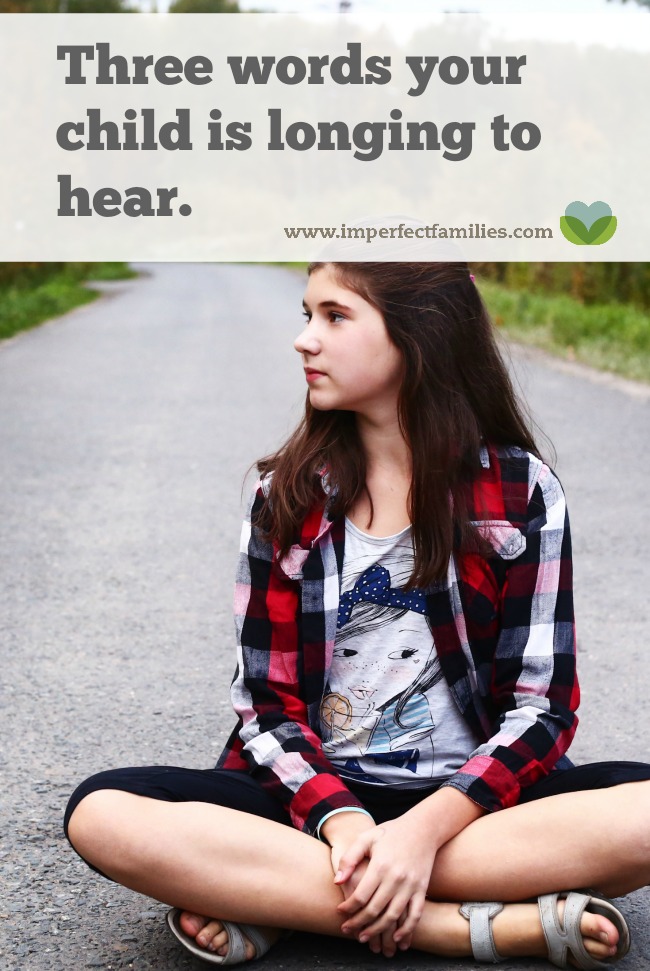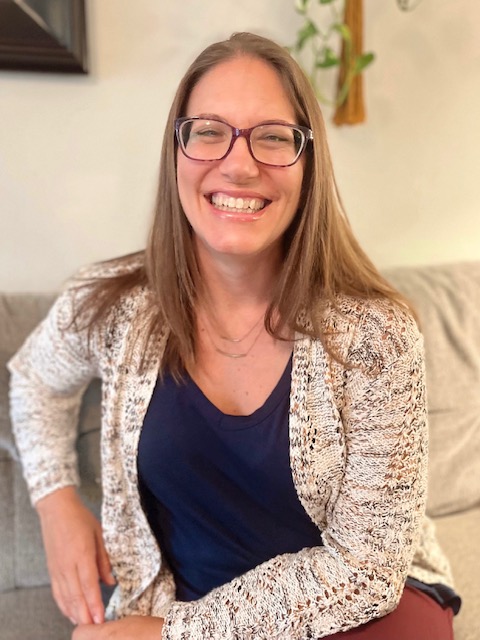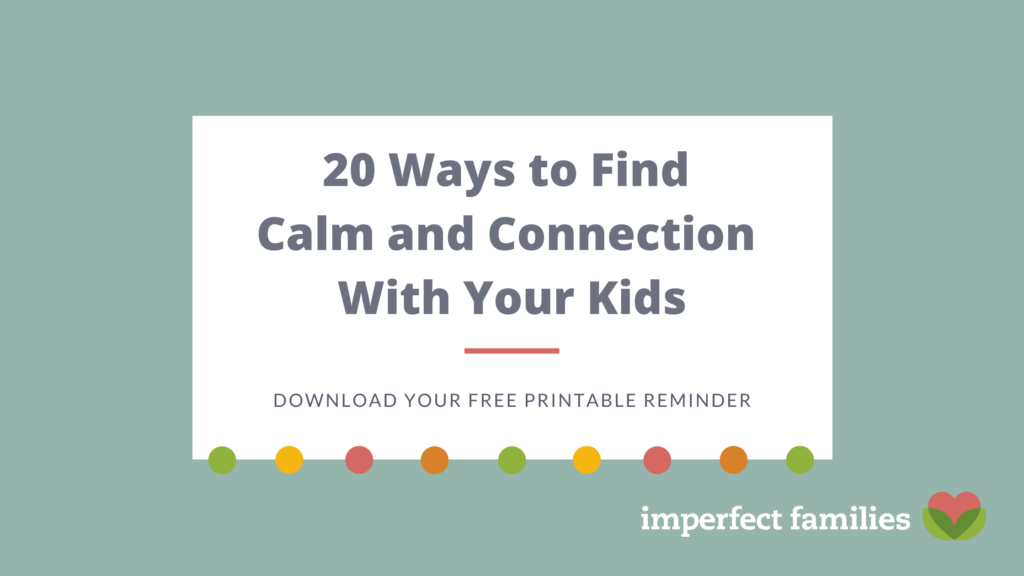
The second I walk in the door, she’s on my heels. Showing me a thousand pictures, talking non-stop about her day, balancing on one foot, then the other. If I’m distracted, she might mix things up a little. Pulling on my sweater, singing at the top of her lungs, or whining.
She wants my attention.
But she wants more than just my gaze, she wants to be seen.
Dropping his backpack with a thud, he plops on the couch. No words, just grunts, shrugs, and “I don’t know” when I ask about his day. I feel frustrated. Fine, if you don’t want to talk, I’ll go in the other room and do one of the fifty tasks piled up in there.
He doesn’t say it, but he wants my attention too.
He wants more than my patronizing words and half-hearted attempts at communication, he wants to be seen.
The Three Words Your Child is Longing to Hear
I see you.”
One of the most powerful phrases we have in our vocabulary is also one of the most vulnerable: “I see you.”
To be seen is to be known. Intimately.
To truly see someone, we choose not to look away because of flaws or imperfections.
To see your child, it’s to send the message, “You are valuable to me. You are worthy. You are important. You are loved.”
Being seen may be more than just giving our attention or spending time together, it’s a way to connect on a deeper level.
When we “see” our kids, they are able to rest. They don’t need to act in a certain way to get our attention. They don’t need to put on a facade or pretend everything is OK when they are struggling.
They don’t need to wonder if we are committed and invested in their lives. They know it because we act in a way that clearly communicates: “I see you.”
How to say “I See You”
Each child will hear this phrase differently.
For some kids, “I see you” will mean they need your actual eyes on them without distractions. For others, “I see you” may mean sitting side-by-side or doing something together.
Each child has a unique way of being seen.
Here are some examples:
- Watching your child perform on a pretend stage in the living room
- Listening to an explanation of the latest Lego creation
- Sitting quietly while they tell a story
- Resisting the urge to fix a problem
- Cuddling a child who is struggling with big emotions
- Asking open-ended questions
- Showing empathy, even when you don’t agree
- Being curious rather than making assumptions
- Tucking your kids into bed (even if they are “too old” for tuck-ins)
- Creating a safe place to calm down
- Getting down to your child’s level before talking
- Limiting commands/demands
- Deciding not to yell in an intense moment
- Giving your child the benefit of the doubt
- Reinforcing the fact that you are on their team, in their corner, or by their side
- Staying close, rather than using timeouts
- Stopping in the middle of chaos to actually focus and listen
- Sitting together when there is no easy answer or quick fix
- Laughing, playing, roughhousing, or wrestling.
- Making yourself available as a resource if needed
This list barely scratches the surface. Pay attention to your child. What makes them light up? What do they ask for from you constantly? When do they seem the most content?
Use these clues to craft a personalized way to “see” them, even when life is busy.

What if your child resists being “seen?”
For some children, being “seen” is scary. They feel so much shame and guilt that having someone enter into their pain or imperfection stirs up unpleasant emotions.
These children may pull away, ramp up their anger, or use mean/hurtful language as a response to your efforts.
Rather than seeing these behaviors as something that needs a consequence, look a little deeper. Join your child in their experience, imagine what it would be like to feel so unloveable. Understand that their internal dialogue sounds something like: “Don’t let anyone see that you’re imperfect. Don’t allow anyone to get close. Once they see your mistakes, they’ll realize you are flawed. They’ll know your secret – you are a failure.”
Combating shame may not happen overnight. Some children benefit from the support of a mental health provider as they work through this harmful self-talk. But, “seeing” your child can also make a huge difference in shifting these internal messages.
Gently reminding your child that they are loved even in the loud, angry, anxious, disrespectful moments can say “I see you.” Patiently sitting with them as they manage big emotions can send the message, “You are more than your meltdown.” Reacting with support rather than punishment can reinforce, “I’m committed to helping you learn the skills so you can feel successful and confident in the future.”
We all want to be wanted, to be seen, to be loveable. Even the child who seems to resist it the most.
“I see you.”
Setting down the groceries, the bills, and my phone, I drop to my knees. Getting eye to eye with my daughter interrupts her rambles about school projects and newfound acrobatic abilities.
“I missed you while I was at work today.” She beams, running into my arms for a full-body hug. Finally feeling “seen” by me.
The sulking middle-grader on the couch glares into the distance. I move the pillows and sit down nearby. I still don’t know what’s bothering him, so I make a guess, sighing, “School. Ugh.”
He grunts an affirmation. Pulling out a red-inked math test. I want to ask questions, but I stay silent. We’ll talk about it eventually, right now, he needs me to see his pain and frustration, and love him through it.
Want to learn more?
Let’s talk about how you can “see” your children during an online parent coaching session! We can talk through your child’s attention-seeking behaviors and make a plan to meet this need before things get out of control. Learn more about Online Parent Coaching and schedule your first session today!



Comments have been turned off to retain the privacy of all families. If you have a question or comment on the topic, you're always welcome to contact me.